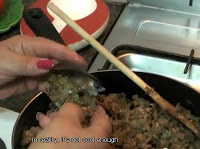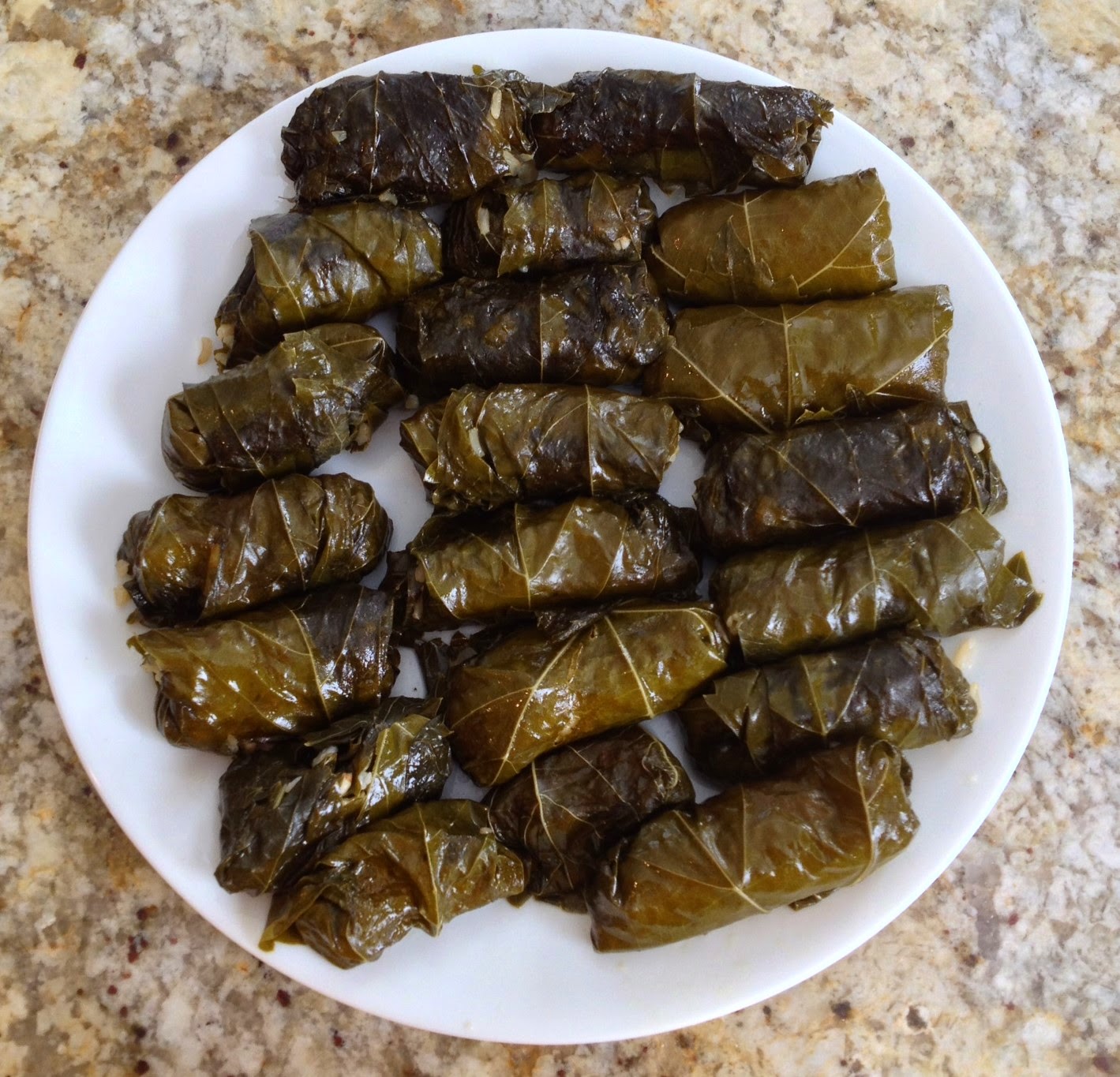
Ara Kassabian from Los Angeles sent me a recipe he makes with farm-fresh Swiss chard and chick peas. It sounded delicious- and somehow familiar.
As I rummaged through my recipes, I discovered a copy that I’d saved a long time ago, but never got around to making. You know how it is. My copy is very similar to Ara’s recipe (how different could it be, really?), and makes an excellent lenten meal or side dish.
Living in an agricultural section of Palm Beach County, Florida, I was determined to find farm-fresh Swiss chard, too. My mother accompanied me as I searched several farm stands to find the perfect bunch.
We were in a time crunch, because the temperature was about to plunge, causing farmers to worry about a cold spell that could possibly damage delicate vegetables. (Can you imagine? Cold weather warnings in February in Florida? Just yesterday I was swimming in the pool!)
On our third stop, I found a perfect specimen of this wonderful, green leafy vegetable. Our dinner menu was set.
Here is the recipe Ara sent for ‘Swiss Chard with Chick Peas’:
Ara said:
“ This is my version, which is based on my mom’s recipe (but, really, it’s a very simple dish):
1 bunch swiss chards (green or mixed)
1 can chick peas
2-3 tablespoons of tomato sauce
1-2 tablespoons of extra virgin olive oil
Salt (very little), black pepper
Aleppo red pepper or equivalent (cayenne, chili colorado, etc.), to taste.
Wash and coarsely chop the chards. Make sure you get all the dirt out. (Robyn says: ‘A very important tip, trust me!’) Heat the oil over medium-high heat and saute the chard until it is limp. Add the chick peas, tomato sauce, salt and peppers. Cover and simmer on low heat until the chard is soft but not “dead”. About 20-30 minutes.
As a variant, you can substitute some ready-made ajika (Georgian tomato-pepper paste) for part of the tomato sauce. In which case, you can omit the Aleppo red pepper.
Note: Swiss chard tends to be high in sodium, and of course canned chick peas also have sodium, so go easy on the salt. You can of course use dried chick peas but I’m a lazy bum.
Nevik is traditionally eaten on Christmas Eve (January 5th), along with rice, fish, and yogurt soup (madzoonaboor).”
The Armenian Kitchen’s variation: We sauteed 1 small, sliced onion, and 2 small, minced cloves of garlic in the oil before adding the Swiss Chard. Instead of tomato sauce, we used 2 Tbsp. pepper paste diluted in a few tablespoons of water. Yum, yum! Served with rice pilaf, our meal was complete.





As we Armenians say when we taste something delicious (including a kiss), "Ohkh!" I followed Ara's recipe (doubled the ingredients) and nearly ate the whole shebang in one day. It's the red pepper that is the clincher. THANK YOU, ArmenianKitchen.com!
TheArmenianKitchen.com (and Ara) are so glad you like it! It's become one of our favorites,too.
I made this today, almost as good as my mom's. I added a little more olive oil than stated, and some diced red peppers. Shad shnorhagalootyoon.
I made this recipe tonight, I added za'atar and served it in pitta bread with a smear of hummus and it was great.
I recently found some additional information about this dish:
1. Nvik is actually the name of a wild green (friar’s cowl; latin name arisarum vulgare) native to the Mediterranean basin (https://en.wikipedia.org/wiki/Arisarum_vulgare). It seems the dish was made with this plant originally. I am assuming that, following the Genocide, people no longer had easy access to nvik and they substituted swiss chard for the original plant, to the point where the second and third generation actually forgot that the chard was a substitute.
2. I very successfully substituted Tuscan kale (black kale) for the Swiss chard. Besides being healthier, I actually like the flavor better. Of course, kale takes longer to cook than chard, so take that into account. When the color of the kale starts to turn but before it turns grey, that is the time to turn off the fire.
Hi Ara, thanks for this additional information about Nevik and its preparation. It’s always a pleasure to hear from you!